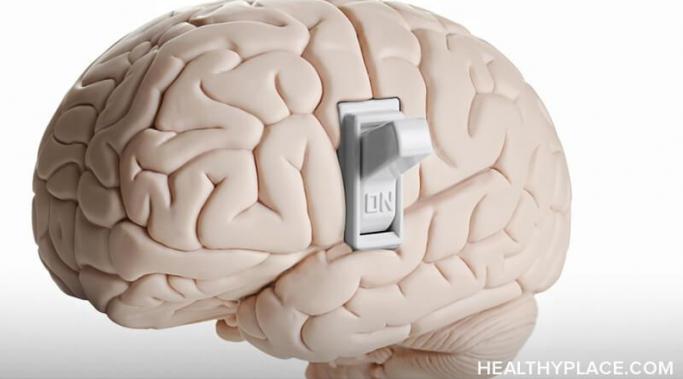The journey of a thousand miles doesn't begin with a spin class, but everyone knows they should exercise. People should be doing it right now. Me too. We should slowly and calmly step away from the Internet. And most of us even know exercise acts as an antidepressant. Which means if we actually got up and walked around once in a while, we might feel better.
But we don't do it. Not the average North American and especially not the average mentally ill North American.
How does a person with a mental illness fight that?
Non-Medication Treatments
People with mental illness have various levels of functioning. Sometimes a good day is when you talk in your group therapy session at the psych ward. Sometimes a good day is getting out of bed. Sometimes a good day is going to the doctor. And sometimes a good day is giving successful presentation to a bunch of executives.
It varies from person to person.
And while anyone can tell you to “take your meds,” that doesn’t really tell you how to get from non-functional to functional. It’s true no one has the exact answer, 33 high-functioning people with bipolar disorder identified six things that keep them moving forward.
The area of diet and mental illness is a contentious one. I suspect that’s for several reasons:
1. Many alternative practitioners make their living telling people what to eat and they want to believe this will help.
2. Individuals want to believe the treatment is simple, drug-free and something they can control.
3. The placebo effect leads to dramatic anecdotes.
Here's what we know about diet and bipolar disorder.
Due to my frequent flirtations with treatment-resistance over the years, I have discussed ECT with a variety of doctors. To the first doctor, and the one after, I said simply, “I would rather die than do that”. Well, as it turns out when faced with death, you’ll do a lot of things you didn’t think you would.
Alternative treatments for bipolar disorder, and any mental illness, abound. People will advise you to do anything from cut gluten out of your diet, to take an herbal cocktail to cleans your aura. I, myself, have seen a few alternative health care practitioners and tried a few of their treatments. And while I didn't personally find any benefit, and I don't find most of these treatments credible, if you are going to try a bipolar treatment outside of medicine, there is one major rule to follow.
Over the years I’ve been treated for bipolar, I’ve come to the conclusion that when you sleep and when you wake (your circadian rhythm) is key in stability and wellness. If you do not wake up at the same time every morning and go to bed at the same time every night you are in for a world of hurt.
This is mostly my opinion though. There is some research on the matter, but nothing as conclusive as I feel about it. Or at least nothing that I knew about until I heard of the Chicago Psychiatry Associates’ Program in Psychiatric Chronotherapy. (Sounds complicated, but it isn’t. Stay with me.)
I had a VNS implanted about three years ago. The surgery involved two incisions, one under the left arm and one on the left lower front of my neck. My neurosurgeon promised a scar between 1-3 inches but it’s probably closer to four. Of course, I would much rather he get the surgery right and have a bigger scar than the other way around. Someone messes up your vagus nerve and you know about it, pretty much forever.
Vagus nerve stimulation (VNS) is exactly what it sounds like--stimulation of the vagus nerve in your neck. Stimulation takes place by using electrical impulses (a nice way of saying shocks). When the vagus nerve is stimulated, that stimulation is then carried to various other parts of the nervous system and this is what is thought to be its method of action. This stimulation may alter neurotransmitters like norepinephrine and GABA.
OK, I know, that’s complicated. In short, they zap a nerve in your neck and that’s carried to the brain where it does stuff.
On Monday, I talked about what to do if you’ve just been diagnosed with bipolar disorder, and if you’ve read that piece then you know, I recommended a lot of breathing and thinking. I notably did not suggest decision-making.
Well, you can’t live in a yoga studio forever.
I’ve been in treatment for over a decade now and in that time I’ve had more than my share of doctors. Some doctors have been awful, but some have been great and at the top of their field. And when a doctor at the top of their field sees a treatment-resistant bipolar, they have some treatment options that your average doctor might not think of.

